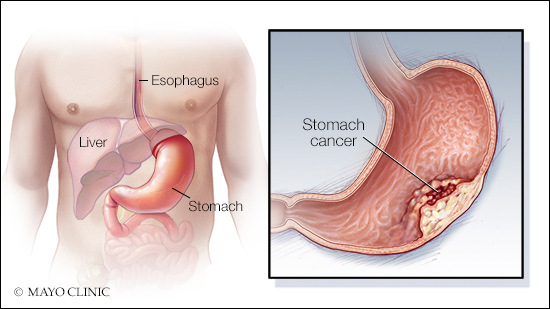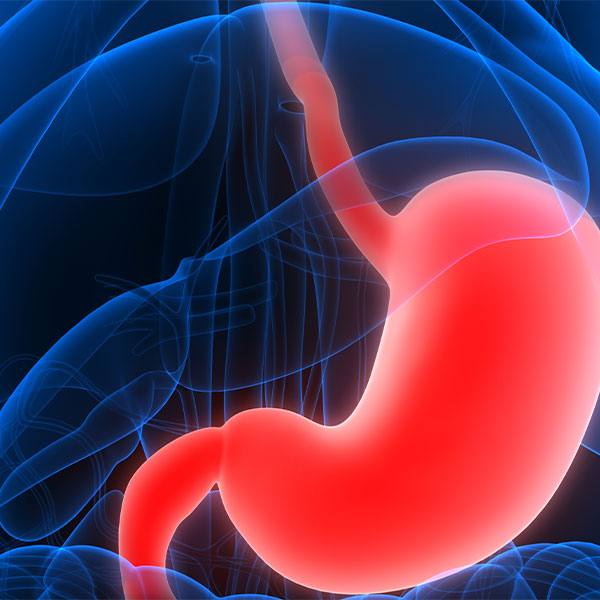-
Cancer
Consumer Health: What do you know about stomach cancer?

November is Stomach Cancer Awareness Month, which makes this a good time to learn more about stomach cancer.
More than 26,000 people in the U.S. will be diagnosed with stomach cancer this year, and more than 11,000 people will die of the disease, according to the American Cancer Society. Stomach cancer accounts for about 1.5% of all new cancers diagnosed in the U.S. each year.
Stomach cancer, also known as gastric cancer, can affect any part of the stomach. In most of the world, stomach cancers form in the main part of the stomach. In the U.S., stomach cancer is more likely to affect the area where the esophagus meets the stomach. Where the cancer occurs in the stomach is one factor health care providers consider when determining treatment options.
Signs and symptoms of stomach cancer can include:
- Difficulty swallowing.
- Feeling bloated after eating.
- Feeling full after eating small amounts of food.
- Heartburn.
- Indigestion.
- Nausea.
- Stomach pain.
- Unintentional weight loss.
- Vomiting.
It's not clear what causes stomach cancer, though research has identified many factors that can increase the risk. Factors that increase the risk of stomach cancer include gastroesophageal reflux disease; obesity; a diet high in salty, smoked foods, or one low in fruits and vegetables; and smoking. People with a family history of stomach cancer also are at increased risk of developing the disease.
Strategies to reduce your risk of stomach cancer include:
- Maintain a healthy weight
If you're overweight or obese, talk to your health care provider about strategies to help you lose weight. Aim for a slow and steady weight loss of 1 or 2 pounds a week. - Choose a diet full of fruits and vegetables
Try to incorporate more fruits and vegetables into your diet each day. Choose a wide variety of colorful fruits and vegetables. - Reduce the amount of salty and smoked foods you eat
Protect your stomach by limiting these foods. - Stop smoking
If you smoke, quit. If you don't smoke, don't start. Smoking increases your risk of stomach cancer, as well as many other types of cancer. It can be challenging to quit smoking, and it takes most smokers several tries before they succeed. Creating a quit-smoking plan and employing some tried-and-true strategies can help. - Ask your health care provider about your risk of stomach cancer
Talk with your health care provider if you have an increased risk of stomach cancer. People with a strong family history of stomach cancer might consider tests, such as endoscopy, to look for signs of stomach cancer.
If you've been diagnosed with stomach cancer, your health care provider will consider the stage of your cancer, as well as your overall health and personal preferences, to determine your treatment plan. This may include surgery, chemotherapy, radiation therapy, targeted drug therapy, immunotherapy and palliative care.
Learn more about stomach cancer from Dr. Travis Grotz, a Mayo Clinic surgical oncologist.
Connect with others talking about stomach cancer in the Cancer support group on Mayo Clinic Connect, an online patient community moderated by Mayo Clinic.







